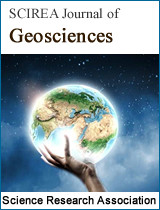DID UKRAINIAN WAR SPELLED THE END OF UNIVERSALISM?
DOI: 10.54647/geosciences17223 84 Downloads 86664 Views
Author(s)
Abstract
Beyond the military, economic and political consequences on the whole of Europe, the brutal arrival in 2022 of the Ukrainian conflict has profoundly modified Western social thinking on a level that risks being prolonged in time. The 19th and 20th centuries had been a period of development of nationalism conceived as synonymous with citizenship. This period ended with the two world wars and the Cold War. The fall of the Berlin Wall in 1989 seemed to open a window of freedom of thought, which was translated by an evolution of the conceptions of citizenship through numerous works impregnated with the thought of Jùrgen Habermas. In these conceptions, citizenship was then defined as an attachment to a democratic society and a will to maintain it. This period is now in danger of being forgotten in favor of a return of nationalisms and the abandonment of a reflection on the organization of a world space where different forms of citizenship could coexist. Under what forms can new spatial organizations be imagined amid nationalisms?
Keywords
Citizenship, Habermas, Imperialism, Berlin Wall, Nationalism, Universalism
Cite this paper
Yves Guermond,
DID UKRAINIAN WAR SPELLED THE END OF UNIVERSALISM?
, SCIREA Journal of Geosciences.
Volume 6, Issue 4, August 2022 | PP. 82-92.
10.54647/geosciences17223
References
| [ 1 ] | Rainer BAUBÖCK (2018). Debating Transformations of National Citizenship. IMISCOE- SpringerOpen |
| [ 2 ] | Ulrich BECK (2003). Pouvoir et contre-pouvoir à l’heure de la mondialisation. Paris. Flammarion |
| [ 3 ] | Michel BEN ARROUS (2020). Beyond Territoriality – A Geography of Africa from below. Codesri. Dakar. |
| [ 4 ] | Pierre BOURDIEU (1993). La misère du monde. Paris Le seuil |
| [ 5 ] | Rogers BRUBAKER (1992) Citizenship and Nationhood in France and Germany. Cambridge Mass. Harvard University Press |
| [ 6 ] | Jean BRUNHES, Camille VALLAUX (1921). La Géographie de l‘Histoire. Paris. F.Alcan |
| [ 7 ] | Thomas DEKEYSER (2022). Worldless futures: On the allure of “worlds to come” Transactions of the Institute of British Geographers, 00,1-13. Available from : https;//doi.org/10.1111/tran.12579. |
| [ 8 ] | Jacques DERRIDA (2010). Séminaire. La bête et le souverain. Vol. II. Paris. Galilée. |
| [ 9 ] | Federico FERRETTI, Edward CASTLETON (2016). Fédéralisme, identités nationales et critique des frontières naturelles: Pierre-Joseph Proudhon, géographe des « Etats-Unis d’Europe ». http://cybergeo.revues.org/27639. |
| [ 10 ] | Nancy FRASER et al. (2014). Transnationalizing the Public Sphere. Cambridge. Polity Press. |
| [ 11 ] | Numa Denis FUSTEL DE COULANGES (1864). La cité antique. Paris. Hachette – 1900 |
| [ 12 ] | Anthony GIDDENS (1987) The Nation-State and Violence. Berkeley. University Press |
| [ 13 ] | Yves GUERMOND (2020). La citoyenneté à travers la géographie. Paris. L’Harmattan. |
| [ 14 ] | Yves GUERMOND (2022). Citizenship and Nationalism – A Remake. Academia Letters. CC BY 4.0 |
| [ 15 ] | Jürgen HABERMAS (1994). Citizenship and National Identity, in Bart van Steenbergen. The Condition of Citizenship. London. Sage |
| [ 16 ] | Jürgen HABERMAS (2000). Après l’Etat-nation. Paris. Fayard |
| [ 17 ] | Samuel HUNTINGTON (1997). Le Choc des Civilisations. Paris. Odile Jacob |
| [ 18 ] | Emmanuel KANT (1795). De la paix perpétuelle |
| [ 19 ] | Pauline KLEINGELD (2000). Kantian Patriotism. Philosophy and Public Affairs 29-4. |
| [ 20 ] | Yves LACOSTE (1997). Vive la Nation. Destin d’une idée géopolitique. Paris Fayard |
| [ 21 ] | Halford John MACKINDER (1902). Britain and the British Seas. London. Heinemann. |
| [ 22 ] | Guy MERCIER (2001) Entre science et patrie : lecture du régionalisme de Paul Vidal de la Blache. Cahiers de Géographie du Québec. 45-126. |
| [ 23 ] | Nicola MIRKOVIC (2022). L’Amérique. Empire. Paris Temporis . |
| [ 24 ] | Caroline NAGEL (2004). Questioning citizenship in an “age of migration” In J.O’Loughlin et al. (eds). Globalization and its outcomes. New-York. The Guilford Press |
| [ 25 ] | Rasoul NEJADMEHR (2022). Intercultural integration: a brief introduction. Academia. |
| [ 26 ] | Liav ORGAD (2018). The Dawn of Global Citizenship? in Rainer Bauböck. Debating Transformations of National Citzenship. IMISCOE- SpringerOpen |
| [ 27 ] | Nathalie PANOT (2022). In Le Monde 19 juillet. |
| [ 28 ] | Friedrich RATZEL (1898). Deutschland, Einführung in die Heimatkunde. Leipzig. Grunow. |
| [ 29 ] | Michel RIOU (1988). L’Etat et l’Enseignement, Géographes Associés www.Persee.fr/collection/geoas |
| [ 30 ] | Ehud SHAPIRO (2018). Global Cryptodemocracy is Possible and Desirable, in R. Bauböck. Debating Transformations of National Citizenship. IMISCOE- SpringerOpen. |
| [ 31 ] | Francesca STRUMIA (2017). Supranational Citizenship, in Ayelet Shachar et al. The Oxford Handbook of Citizenship, Oxford, University Press. |
| [ 32 ] | Peter J. TAYLOR (1991). A theory and practice of regions: the case of Europe. Environment and Planing D. Society and Space.9 (2). |
| [ 33 ] | Paul VIDAL de LA BLACHE (1917). La France de l’Est (Lorraine-Alsace). Paris. Armand Colin. |

